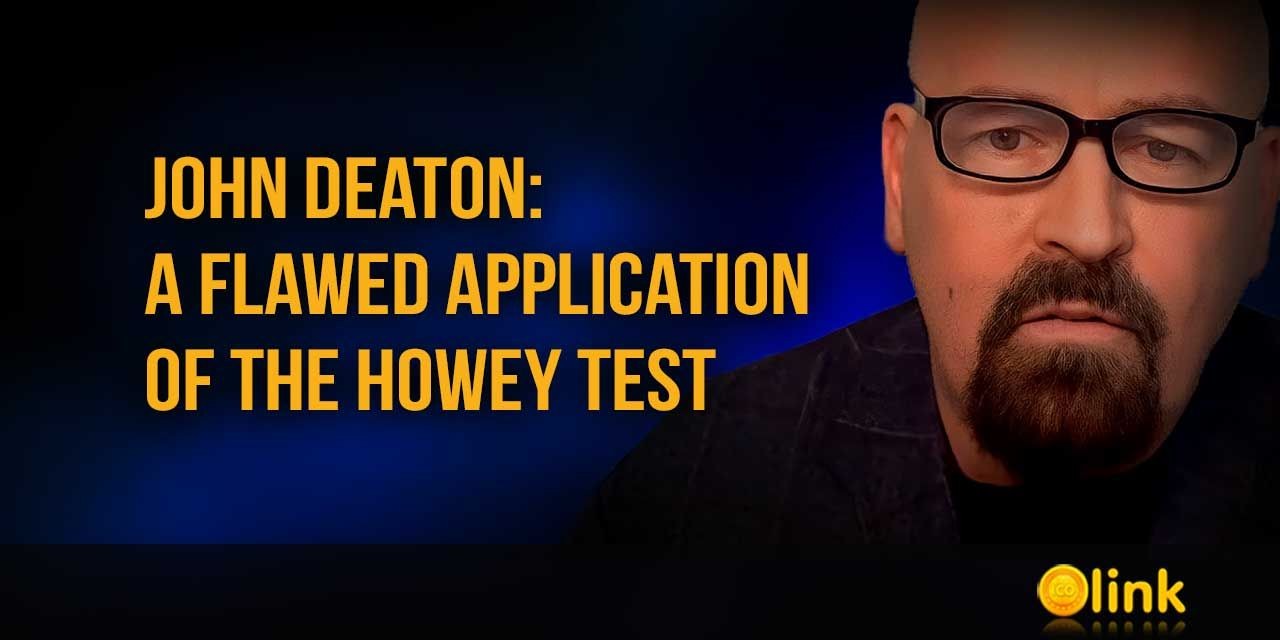John Deaton: A Flawed Application of the Howey Test
Challenging SEC's Interpretation of Howey Test: Ripple Case Analysis
Introduction: The Debate Over Howey Test in Ripple Case
In a recent turn of events, Lawyer John Deaton, known for representing the interests of XRP holders, has raised significant concerns about the US Securities and Exchange Commission's (SEC) understanding and application of the Howey test in the context of the Ripple case. This development has ignited a fresh debate within the legal and cryptocurrency communities regarding the regulatory scrutiny faced by cryptocurrency companies and the nuances of the Howey test. Let's delve into the intricacies of this debate and understand its implications.
Understanding the Howey Test: A Crucial Aspect of Securities Regulation
The Howey test, named after the landmark Supreme Court case SEC v. W.J. Howey Co., is a pivotal legal framework used to determine whether a certain transaction qualifies as an "investment contract" and thus falls under the definition of a security. The test entails a four-pronged analysis to ascertain whether an investment involves a common enterprise and if the investors expect profits predominantly from the efforts of others. This framework is particularly relevant in the realm of cryptocurrency regulation, where the classification of digital assets as securities or commodities can have far-reaching consequences.
John Deaton's Critique: A Flawed Application of the Howey Test
Lawyer John Deaton's criticism revolves around the SEC's treatment of XRP, a digital asset associated with Ripple, under the Howey test. Deaton argues that the SEC's stance, particularly its assertion that XRP lacks intrinsic value, misrepresents the essence of the cryptocurrency. This assertion has become a point of contention, prompting Deaton to call for a re-evaluation of the Howey test's application in the Ripple case.
Deaton's Call for Re-examination: Addressing the Issue
Deaton's plea for the SEC to revisit the Howey test stems from his belief that the regulatory body's approach is fundamentally flawed. He emphasizes that the Howey test evaluates whether an investment is tied to the efforts of others, irrespective of the presence or absence of intrinsic value. Deaton's stance underscores the need for a holistic evaluation that considers the broader implications of a digital asset within the cryptocurrency ecosystem.
Bill Morgan's Voice: Echoing Concerns
Australian lawyer Bill Morgan has also joined the chorus of dissent against the SEC's treatment of XRP. Morgan highlights that the SEC's declaration on XRP's lack of intrinsic value was made during the summary judgment phase of the Ripple case. This timing has raised eyebrows and intensified suspicions about the regulatory body's approach.
Revisiting the Howey Test: Implications for the Ripple Case
The Howey test's application in the Ripple case has significant ramifications for the classification of XRP as a security. If the SEC's interpretation is found to be flawed, it could potentially alter the outcome of the case and influence the regulatory landscape for other digital asset. John Deaton's call for re-evaluation underscores the need for a comprehensive understanding of digital assets' nuances before applying regulatory standards.
Questioning Former SEC Official Bill Hinman's Testimony
John Deaton has also brought former SEC official Bill Hinman's testimony into the spotlight. He cites Hinman's statement, given under oath, that the SEC is not obligated to satisfy all Howey test requirements to establish crypto assets as investment contracts. Deaton raises concerns over the veracity of this statement, proposing two scenarios: either Hinman was unfit to lead the SEC's finance arm, or he made inaccurate statements under oath.
The Ripple Effect: Implications Beyond the Case
The Ripple case's outcome and the ongoing debate over the Howey test's application extend beyond the immediate legal context. The cryptocurrency industry keenly observes these developments, as they could set a precedent for future regulatory decisions. The debate underscores the evolving nature of cryptocurrency regulation and the necessity for clarity in legal frameworks.
Conclusion: Navigating Cryptocurrency Regulation
The clash of interpretations between legal experts like John Deaton and the SEC over the Howey test exemplifies the intricate challenges of regulating digital assets. As the Ripple case unfolds and the cryptocurrency landscape continues to evolve, a harmonious balance between innovation and regulation remains the ultimate goal. The outcome of this debate will significantly shape the legal trajectory of digital currencies, making it a focal point for both legal and cryptocurrency communities worldwide.






